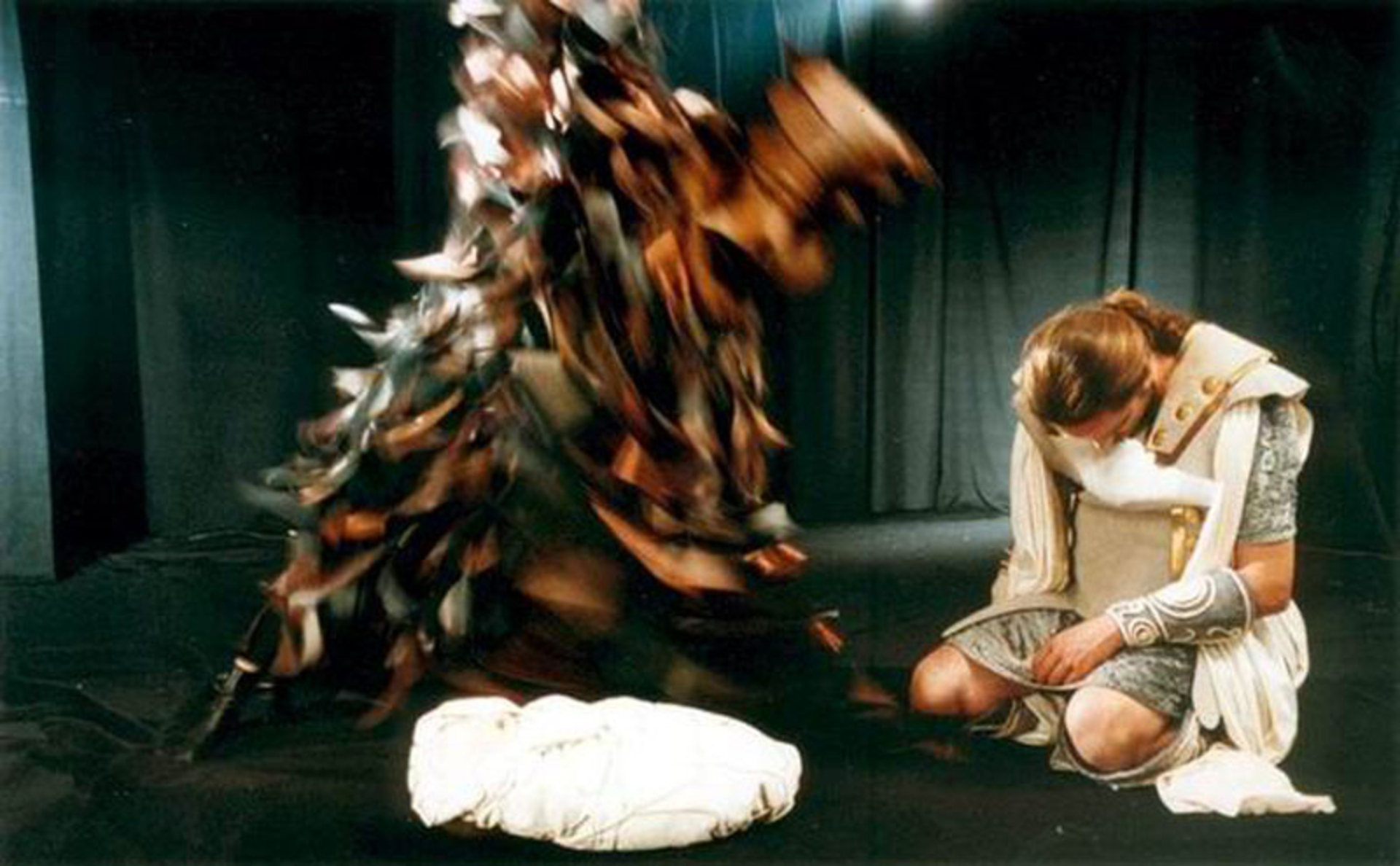The hero was a king of Argos who voluntarily resigned to become Apollo’s seer and devote himself to the art of divination. In the end, he was the only mortal of that period to be deified.
All the great tragedians, Aeschylus, Sophocles, Euripides, composed plays under his name. Unfortunately, none of them survived, only their fame.
It is indeed strange for the student of ancient mythology to realize that Amphiaraos, who nowadays is a rather unknown figure of the ancient world to the general public, was one of the leading heroes in his time. His personal drama, his fruitless attempts to thwart Argos’ campaign against Thebes, appears as the central axis around which the most characteristic events that marked his generation were shaped. His story is so full of events involving Oedipus, Theseus, Agamemnon, Kreon, Jason, etc. and he may be seen as the nucleus of that period.
Dimitri Peretzi’s play does not follow the structure of ancient tragedy. It is an epic theatrical narrative covering most of Amphiaraos’ life span. The play has been adapted for the theatre in a large-scale production with twenty-five actors. It was presented to the public for the first time in 2002 at “Pireos 131” theatre in Athens, and later in other theatres and festivals in Athens and Thessaloniki.
Similar to other productions of RODA, “Amphiaraos” is a play with live music and innovative costumes, comparable to the way the Mesopotamian epic Gilgamesh and the Indian Ramayana, performances that we featured in news reports on the international channel CNN, were staged.
Theatrical play by Dimitri Peretzi in ten scenes; directed by Maria Peretzi.


